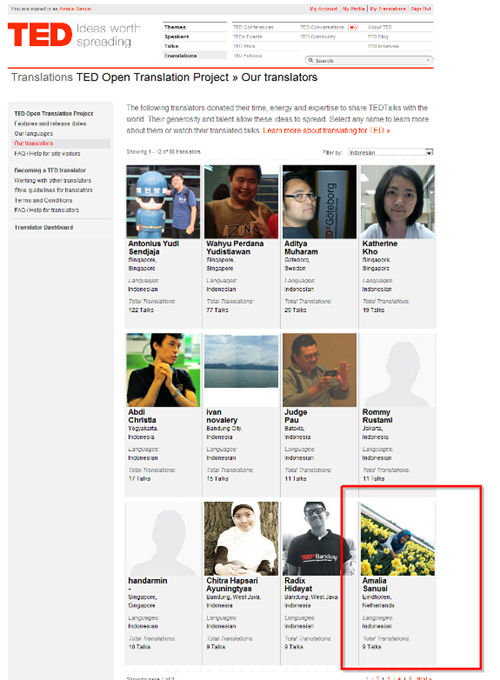I have just discovered this video! It’s been awhile since I watched a TEDTalk and wrote it here on my blog. After watching this talk delivered by Sherry Turkle, I decided to quickly write it here.
I have complained a lot in this blog about the Internet, gadgets, and social networking sites which have done a great deal in changing the way we, the humans, interact with each other. To be honest, they are not entirely bad. Thanks to social networks, I can be connected again to my long lost friends in elementary school or high school. I remember about a half a decade ago, I used to be the one who searched for them on the Internet and made a mailing list group so that we could keep in touch. When only few people used Friendster, I told everyone to create an account there. When Facebook gained popularity in the US (but not in other countries), I told all of my close friends to move to Facebook :P. I was busy making sure that although they’re not physically close to me anymore, I could at least reach them online.
But now, every single person can be easily reached. Virtually reached, that is. Everyone is on Facebook, Twitter, YM, LinkedIn, GMail, aaah…. you name it! People, including me, are addicted to it. Every time we encounter something, we update our status. We no longer call our closest friends to tell them about it, but updating a status seems to be the coolest way to go about it. Hi-by friends or even strangers suddenly become our best “virtual listeners”. Friends or families are busy with their smartphones while having dinner together. It is absurd, if you really think about it (I’m criticizing myself too, you know!). We spend less time to have a real and deep conversation with people because we spend too much time online with people who we think they care (but they are not, really).
So, this talk by Sherry Turkle is exactly what has been running through my mind for the past few months or years — except that, she explains it more beautifully and persuasively than I do. One thing that struck me is this:
When I ask people “What’s wrong with having a conversation?” People say, “I’ll tell you what’s wrong with having a conversation. It takes place in real time and you can’t control what you’re going to say.” So that’s the bottom line. Texting, email, posting, all of these things let us present the self as we want to be. We get to edit, and that means we get to delete, and that means we get to retouch, the face, the voice, the flesh, the body — not too little, not too much, just right.
This is the major difference between real conversation and “virtual conversation” (texting, email, etc). Real conversation cannot be perfected with technology. There is no rewind or undo button. We can appear as perfect as we can virtually. We can appear as the person we always want to be virtually. We can pretend to care when we have a hard time to show our care to other people in the real world. We get to do things that we cannot do in real life.
What’s more is that, technology seems to be the thing we turn to when we are most vulnerable. As Sherry puts it: “The feeling that ‘no one is listening to me’ make us want to spend time with machines that seem to care about us.” Technology makes us feel connected, somehow. The moment that we are alone, have nothing to do, waiting for the bus, or have nothing to talk about with the person next to us, we immediately try to reach our small device.
For me, social networks are important to keep in touch with friends that are thousand miles apart from me. But to those who are within few km distances, I’d rather have a meaningful one-to-one conversation over coffee, lunch, or dinner. That’s the only way to understand and learn about my friends. No amounts of emails, Skype, and YM messages can beat real conversation. It is hard to loosen up my addiction to social networking, but at least I know that I still prefer the old traditional way of interacting. With the loneliness plaguing my life, talking to friends online in any way cannot heal this feeling. In order for it to disappear, I need friends who are physically here, talking to me. While some chats and emails did help in motivating and encouraging me, all of them are temporary. They are like medicines that can heal the pain but unfortunately, they cannot cure the actual disease.
I’m not suggesting to ban social networks and abandon them all together. But what I’m suggesting is to spend more meaningful time with the people around us. Talk to them. Know them well. Socialize. At least, put our smartphones away when we are with them. I do get annoyed by it when everyone is with their phones!!! 🙂 So, let’s do myself and everyone a favor that when you sit down with your friends, put your mobile phones away. Prove yourself that you can ignore this device, even though it’s merely an hour long.

